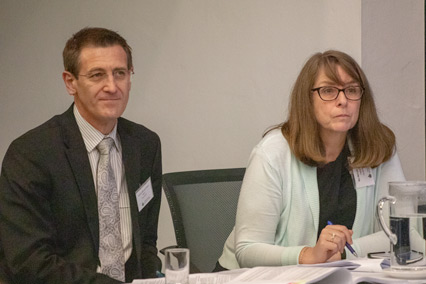A policy for the use of church property has been passed by the Synod after amendments to clarify the scope and implementation of the policy.
The policy guides churches and Anglican organisations on renting out and leasing properties.
The use of church property has always been governed by various regulations and the latest policy consolidates these into a single document and, for legal reasons, spells out doctrinal issues.
Bishop Michael Stead, as Chair of the Religious Freedom Reference Group, moved the motion and told Synod that the essence of the policy is that church property should not be used for purposes which are contrary to the doctrine of the church.
“It arose in the context of the same-sex marriage debates last year, and the realisation that the changing legal landscape had put our Anglican institutions at risk of anti-discrimination complaints and other adverse action.” Bishop Stead said.
The Bishop admitted the policy was a ‘clunky’ way to handle the problem.
“The core problem is that there is almost no positive protection for freedom of religion in Australian law. Instead, what little protection there is comes from carve-outs – exemptions – in anti-discrimination legislation. Exemptions are the wrong way to deal with this – it is a sledge-hammer to crack a peanut. However, it seems that there is no political appetite for a proper fix, and it seems we are stuck with clunky exemptions. And this policy and ordinance is the – also somewhat clunky – way to address this. “
“To rely on existing anti-discrimination exemptions, a religious institution must demonstrate that its actions conform to the ‘doctrines, tenets or beliefs of that religion’. To ensure that the courts know what “our doctrines, tenets or beliefs” are, we need a clear articulation of our doctrines.”

Before the legislation went before Synod there had been erroneous media reports that it would ban indigenous smoking ceremonies.
“The original ban was not a ban on all smoking ceremonies, only those with a spirituality inconsistent with Christianity. However, on wider advice from Aboriginal Christians, we realised that we need to consult more widely, because the spiritual significance of smoking ceremonies differs in different places. Moreover, this discussion needs to be part of the wider conversation about reconciliation between the first peoples of this country and its later arrivals, and needs to be driven by indigenous Christians. It was clumsy to address this in a proper use policy, and I readily withdraw it, with deep apologies to the aboriginal community.” Bishop Stead said.
Bishop Stead fielded questions from parishes on how the policy would apply in certain circumstances and responding to criticism that the document was too negative, he said it was not meant to be a mission document, but one which would assist churches.
“I am aware of at least one church which ceased all external hiring of their church hall, based on legal advice that they could be in breach of anti-discrimination legislation if they refused to hire to certain groups and not others. Their legal advice was – don’t do this, unless there is a clear statement of your doctrines, tenets and beliefs, which explains that this was why you said no, rather than because you are discriminating. These policy and ordinance address this problem. Please note – this policy is a shield, not a stick. It didn’t come about because someone wants control to correct wayward parishes or boards of Anglican institutions who are running amok. It is a shield to protect them from claims of discrimination or from other external pressure."
























